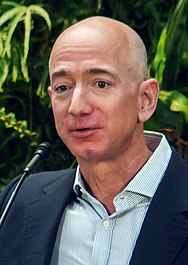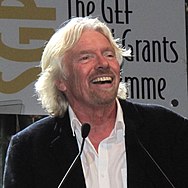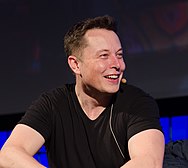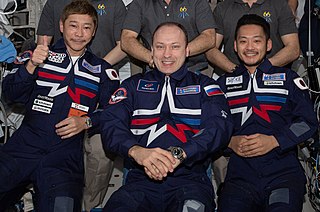
Space tourism is human space travel for recreational purposes. There are several different types of space tourism, including orbital, suborbital and lunar space tourism. Tourists are motivated by the possibility of viewing Earth from space, feeling weightlessness, experiencing extremely high speed and something unusual, and contributing to science.
Human spaceflight programs have been conducted, started, or planned by multiple countries and companies. Until the 21st century, human spaceflight programs were sponsored exclusively by governments, through either the military or civilian space agencies. With the launch of the privately funded SpaceShipOne in 2004, a new category of human spaceflight programs – commercial human spaceflight – arrived. By the end of 2022, three countries and one private company (SpaceX) had successfully launched humans to Earth orbit, and two private companies had launched humans on a suborbital trajectory.

The Space Age is a period encompassing the activities related to the space race, space exploration, space technology, and the cultural developments influenced by these events, beginning with the launch of Sputnik 1 on October 4, 1957, and continuing to the present.

Private spaceflight refers to spaceflight activities undertaken by non-governmental entities, such as corporations, individuals, or non-profit organizations. This contrasts with public spaceflight, which is traditionally conducted by government agencies like NASA, ESA, or JAXA.

Blue Origin Enterprises, L.P., commonly referred to as Blue Origin is an American aerospace manufacturer, defense contractor, launch service provider and space technologies company headquartered in Kent, Washington, United States. The company makes rocket engines for United Launch Alliance (ULA)'s Vulcan rocket and manufactures their own rockets, spacecraft, satellites, and heavy-lift launch vehicles. The company is the second provider of lunar lander services for NASA's Artemis program and was awarded a $3.4 billion contract. The four rocket engines the company has in production are the BE-3U, BE-3PM, BE-4 and the BE-7.

Virgin Galactic Holdings, Inc. is a British-American spaceflight company founded by Richard Branson and the Virgin Group conglomerate which retains an 11.9% stake through Virgin Investments Limited. It is headquartered in California, and operates from New Mexico. The company is developing commercial spacecraft and aims to provide suborbital spaceflights to space tourists. Virgin Galactic's suborbital spacecraft are air launched from beneath a carrier airplane known as White Knight Two. Virgin Galactic's maiden spaceflight occurred in 2018 with its VSS Unity spaceship. Branson had originally hoped to see a maiden spaceflight by 2010, but the date was delayed for several years, and then delayed again, primarily due to the October 2014 crash of VSS Enterprise.

A commercial astronaut is a person who has commanded, piloted, or served as an active crew member of a privately funded spacecraft. This is distinct from an otherwise non-government astronaut, for example Charlie Walker, who flies while representing a non-government corporation but with funding or training or both coming from government sources.

Vertical takeoff, vertical landing (VTVL) is a form of takeoff and landing for rockets. Multiple VTVL craft have flown. The most successful VTVL vehicle was the Apollo Lunar Module which delivered the first humans to the Moon. Building on the decades of development, SpaceX utilised the VTVL concept for its flagship Falcon 9 first stage, which has delivered over two hundred successful powered landings so far.
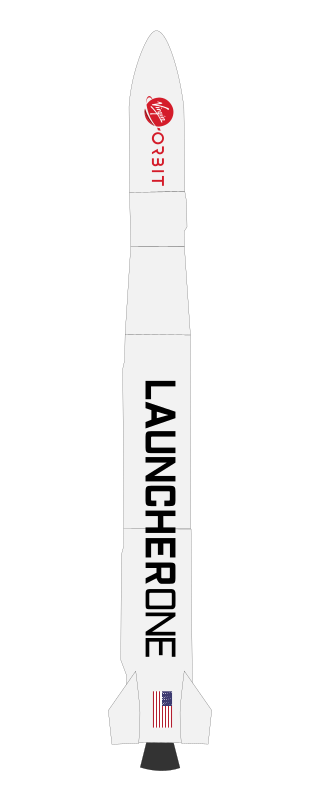
LauncherOne was a two-stage orbital launch vehicle developed and flown by Virgin Orbit that had operational flights from 2021 to 2023, after being in development from 2007 to 2020. It was an air-launched rocket, designed to carry smallsat payloads of up to 300 kg (660 lb) into Sun-synchronous orbit (SSO), following air launch from a carrier aircraft at high altitude. The rocket was carried to the upper atmosphere on a modified Boeing 747-400, named Cosmic Girl, and released over ocean. Initial work on the program was done by Virgin Galactic, another Virgin Group subsidiary, before a separate entity — Virgin Orbit — was formed in 2017 to complete development and operate the launch service provider business separately from the passenger-carrying Virgin Galactic business.

Lunar tourism may be possible in the future if trips to the Moon are made available to a private audience. Some space tourism startup companies are planning to offer tourism on or around the Moon, and estimate this to be possible sometime between 2023 and 2043.

Spirit of Mojave, previously Cosmic Girl is a Boeing 747-400 aircraft. A former passenger airliner operated by Virgin Atlantic, it was purchased by Virgin Galactic in 2015 to be used as the first stage launch platform for the air launch stage of the smallsat orbital launch vehicle, the LauncherOne. In 2017, the aircraft was transferred to the orbital launch subsidiary, Virgin Orbit, and its livery updated to Virgin Orbit. LauncherOne attempted its first launch on 25 May 2020; the launch was a failure. The first successful launch took place on 17 January 2021.
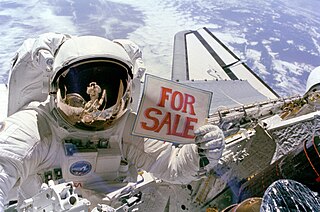
The following is a timeline of important events in the history of private spaceflight, including important technical as well as legislative and political advances. Though the industry has its origins in the early 1960s, soon after the beginning of the Space Age, private companies did not begin conducting launches into space until the 1980s, and it was not until the 21st century that multiple companies began privately developing and operating launch vehicles and spacecraft in earnest.
The Mars race, race to Mars or race for Mars is the competitive environment between various national space agencies, "New Space" and aerospace manufacturers involving crewed missions to Mars, land on Mars, or set a crewed base there. Some of these efforts are part of a greater Mars colonization vision, while others are for glory, or scientific endeavours. Some of this competitiveness is part of the New Space race.

Virgin Orbit was a company within the Virgin Group that provided launch services for small satellites. The company was formed in 2017 as a spin-off of Richard Branson's Virgin Galactic space tourism venture to develop and market the LauncherOne rocket, which had previously been a project under Virgin Galactic. LauncherOne was a two-stage launch vehicle, air-launched from a Boeing 747 carrier aircraft, designed to deliver 300 kg of payload to low Earth orbit.
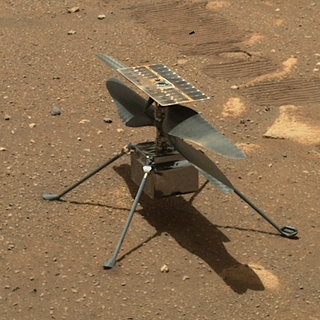
The year 2021 broke the record for the most orbital launch attempts till then (146) and most humans in space concurrently (19) despite the effects of COVID-19 pandemic.

Starship HLS is a lunar lander variant of the Starship spacecraft that is slated to transfer astronauts from a lunar orbit to the surface of the Moon and back. It is being designed and built by SpaceX under the Human Landing System contract to NASA as a critical element of NASA's Artemis program to land a crew on the Moon.

Virgin Galactic Unity 22 was a sub-orbital spaceflight of the SpaceShipTwo-class VSS Unity which launched on 11 July 2021. The crew consisted of pilots David Mackay and Michael Masucci as well as passengers Sirisha Bandla, Colin Bennett, Beth Moses, and Richard Branson.

Oliver Daemen is a Dutch space tourist who flew as part of the 20 July 2021, sub-orbital Blue Origin NS-16 spaceflight. At the time of his flight he was 18 years old, and became the youngest person, first teenager, and first person born in the 21st century to travel to space using the United States definition of the boundary of space. He is a licensed pilot.
